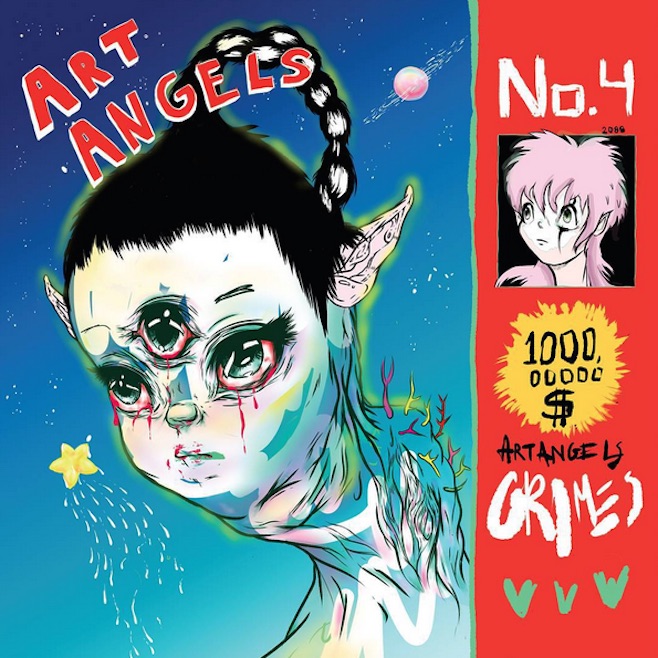After six years of performing under the name Grimes, Claire Boucher is blasting into the stratosphere of mainstream pop: her out-of-this-world beats and sound made more palatable for radio on her fourth studio album, “Art Angels.” Swapping out her signature dream-pop with thudding club beats and more confident operatics, the genre-blending album covers a lot of ground in its 14 songs, and features more live instrumentation than ever before, including piano, guitar and violin, all played by her.
Boucher describes her style as genre-less, blurring the lines between experimental and mainstream. And while she is broadening her sound, “Scream,” featuring an alluring performance from underground Taiwanese rapper Aristophanes, verifies that Grimes’ weird ethos remains unscathed. Her collaboration with R&B artist Janelle Monáe on the feminist anthem, “Venus Fly,” soars with a thunderous beat and the aggressive hook, “Hey, what about me? Oh, why you looking at me?”
Comparing the updated version of “REALiTi,” from the demo she shared earlier this year, the production is sharper, poppier and defined. The songs on “Art Angels” are structured and hooky, her vocals are more present. The shift to the polished production may set back some listeners, arguing that Boucher waters down her creativity for more exposure and popularity. However, like much of Grimes’ work, it takes time to break in, and on Laughing and Not Being Normal” it’s evident that she’s improved as a writer and a singer, giving the album a polished resonance, while still retaining her beloved alien spirit.
Still, it’s on “Kill V. Maim,” a ground shaker loaded with vitality, that Grimes outdoes herself. The eclectic pop song is the epicenter of the album, with driving rhythm guitars pairing perfectly with Boucher’s super sassy vocals. The demented K-POP inspired cheerleading pre-chorus followed by her screaming “Eh, oh, don’t be hate, oh, don’t be hateful,” is so Anti-Top 40, it has the potential to claw its way up the charts and be the very piece that redefines her career.
From gracing the February cover of Discorder back in 2012 to becoming one of the most popular electronic artists in the world, the evolution of an artist like Grimes is a rare one indeed. Most times when an underground artist such as herself flourishes and finds international success, their unique visions and traits fade away as they become more commercially successful, eventually leading to their career’s demise. However, every time Claire Boucher lets us into her world, she makes us come up to her instead of her coming down to us. It’s like she has made it impossible for anybody or anything to wake her from her reverie, singing and creating music to please nobody beside herself. She cannot, and may never be, pinned down by anyone apart from herself. As she flies away on “Butterfly”, she makes it clear that her evolution is one of many, and that she won’t be confined to anything or anyone, singing “If you’re looking for a dream girl, I’ll never be a dream girl.”


